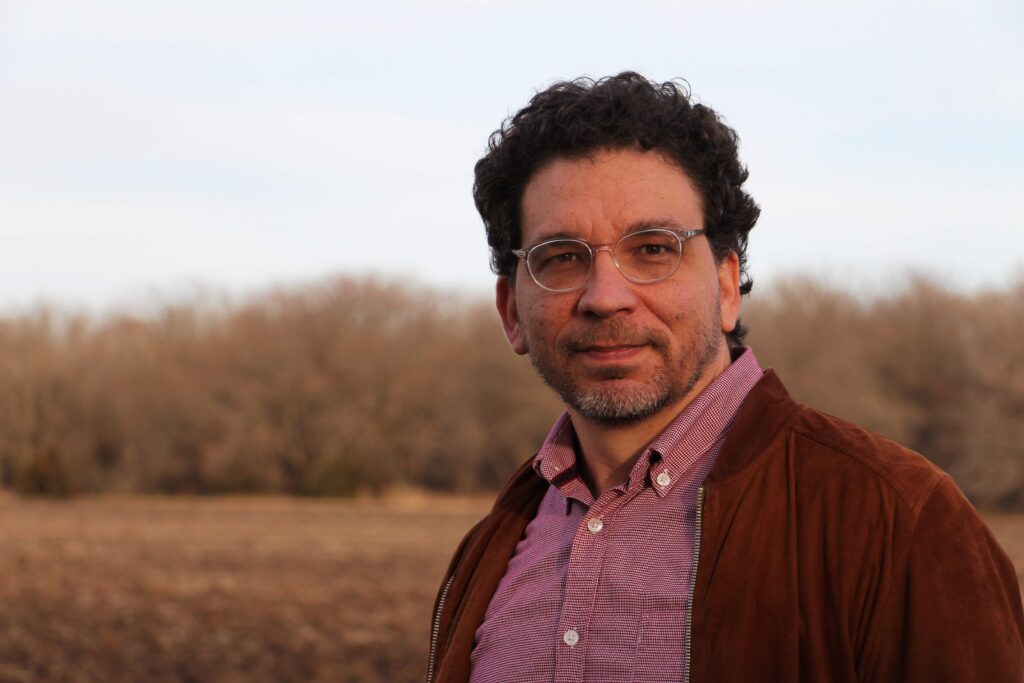Featured Poem: “White Trash” by Sam Taylor
Sam Taylor
White Trash
Walking toward the river, I saw—
well, I didn’t know what I saw.
I’d never seen so many—how many?
ten? twelve?—snowy egrets
at once, in a single tree
overhanging the river, then realized
it must be trash of some kind
as if from a great flood, but still strange,
as there had been no flood
that great, not here, or recently,
and even if there had been, why
were these paper towels or plastic bags
in no other trees, only deposited
in this one tree, as if anointed,
and besides, they looked so white,
more like pieces of the sky
that had flooded downward and then receded up,
or as if memory had left them,
forgotten them there
like beauty scars. Twice surreal
was the tear in the waking fabric—
once that they were there,
and once that trash could be so beautiful.
It reminded me of toilet paper
I’d seen streaming down the trees
of the high school a few months back—
May, some graduation rite—
they looked, in the sweep of headlights,
like the binding ties of Apollinaire’s
rain. And just like that,
decades pass. The tragedy of childhood
is its plasticity, that it will assume any shape
impressed upon it, a word like “never”
dropped one part per billion
into the heart’s clear water.
can seize and bend it into a hideous,
oil-scaled, black swan. The toilet paper
hanging from the trees in the morning
were an annunciation,
a violation of a deeper rain
I didn’t participate in clearing.
It was the first night I’d ever spent
away from my mother’s house.
All her efforts to shield me
from the world’s assault
could not have predicted the corner
from which actual threat would come.
There was said to be a prison
somewhere beyond the Florida holly.
the tall barbed wire. And that was
fear—a mad convict with a knife
who’d cut into your flesh like melon
as if your own life wasn’t waiting
to destroy you. Your life which could be
in secret slowly engineered
to be a steady instrument of torment.
And the conversation was as innocent,
that is, as creepy, as a doll house
all slit open in its backside
for hands to reach into the underloins
of the puppets—about
how all the girls the night before
in their barracks before bed
had picked which boys they would marry.
I was sitting at a picnic table
in the cafeteria with a friend
I’d met the day before,
and the girl telling this
who had found him to tell him
he was her picked husband,
said no one, when my friend asked
who had picked me. We asked, she said,
but no one wanted to. Birds are shot
out of the sky every day,
and it’s no big tragedy.
Some of them are carried back
in the jaws of faithful dogs
and others flake apart
into the swamp. I can see now
many things I couldn’t then.
The cast of the girls, for example,
in their bunk barracks—
night gowns and nail polish,
early hormonal washes
like underwater bees
buzzing before the dawn—
the sea-swell I was blind to then, and so I had to be nothing
on those paper sands, a parasail
camouflaged the color of the sky.
Or, how easily all this might have meant
nothing more than being a work of art
unnoticed for centuries,
instead of the meanings that swarmed me—
‘no one likes me,’ ‘no one will ever
want to marry me,’
‘I will never be happy.’
I didn’t know I was building
the house I would live in
and need to escape, for years,
how I began that very instant,
furiously, where no one could
stop me. When I returned
in the yellow schoolbus, two days later,
to my mom and dad,
they would have seen I was safe,
returned whole, unharmed, and not seen
the lantern turned off in my eyes,
or the hands slit through
the doll house, like the apartment
building on the news
after the hurricane, its backside
torn off, living rooms exposed
to the tidal eyes
of history. While we were sleeping
that first night, the girls had snuck out,
led by their teachers, Mrs. Hadley,
Ms. Breeson, and toilet papered our bathroom
and the oaks outside our barracks.
It rained later in the night. The trick
was you had to clean it up.
I didn’t see why we should, or why
Mr. Brown and Mr. Strait
led the boys out the next night
to trash the girls’ side. If I went with them—
I truly don’t know—it was as a shade only,
reluctant, my spirit’s eyes closed,
gathering no memory.
So, all of that is what I saw in one second
when I saw the trash anointing the tree
and then a few seconds later, I realized no
it was not trash, but two egrets amid trash,
and then wrong again, the whole tree
was filled with white egrets—twelve or thirteen,
many of them babies, in their blinding color,
gathered in their single family tree
where the flooded sky had left them.

Sam Taylor is the author of three books of poems, Body of the World (Ausable/Copper Canyon), Nude Descending an Empire (Pitt Poetry), and The Book of Fools: An Essay in Memoir and Verse (forthcoming, Negative Capability). A native of Miami and a former caretaker of a wilderness refuge in New Mexico, he currently tends a wild garden in Kansas, where he directs the MFA Program at Wichita State. His work has been recognized with the Amy Lowell Poetry Traveling Scholarship, among other awards, and his poems have appeared in such journals as The Kenyon Review, AGNI, and The New Republic.
